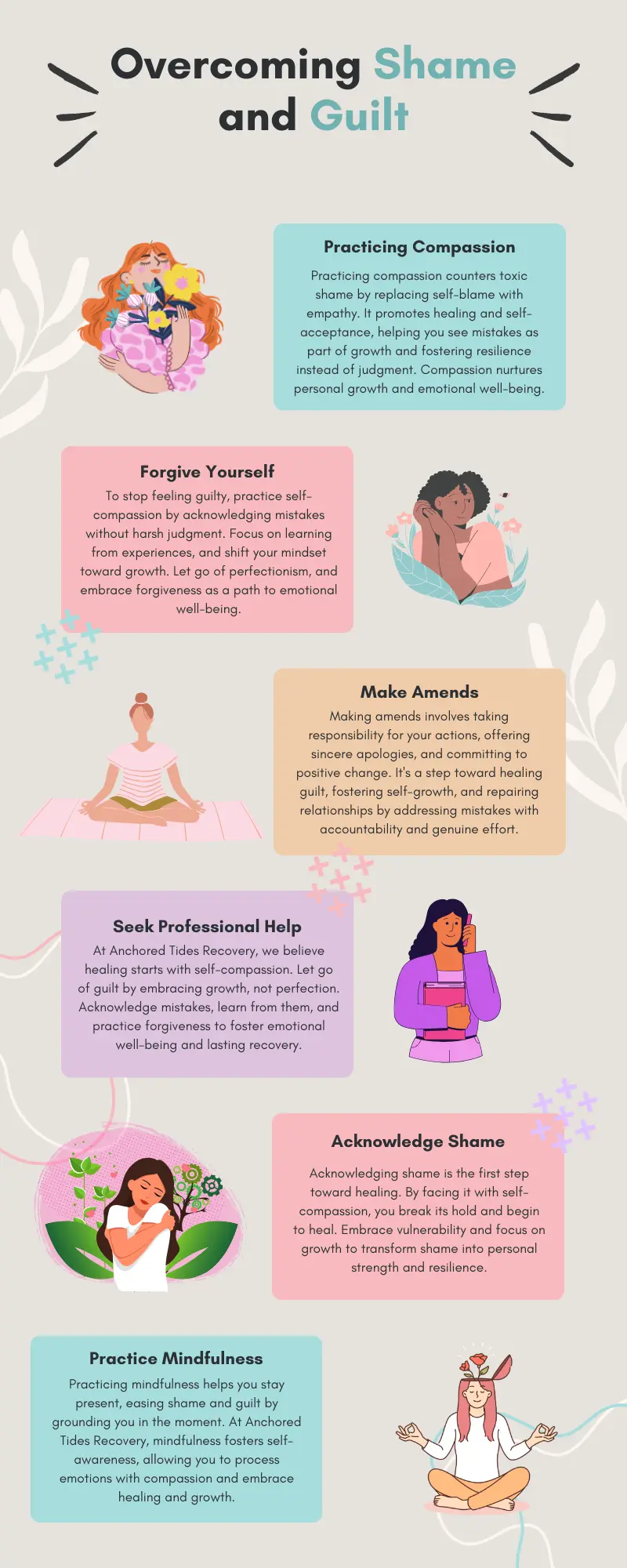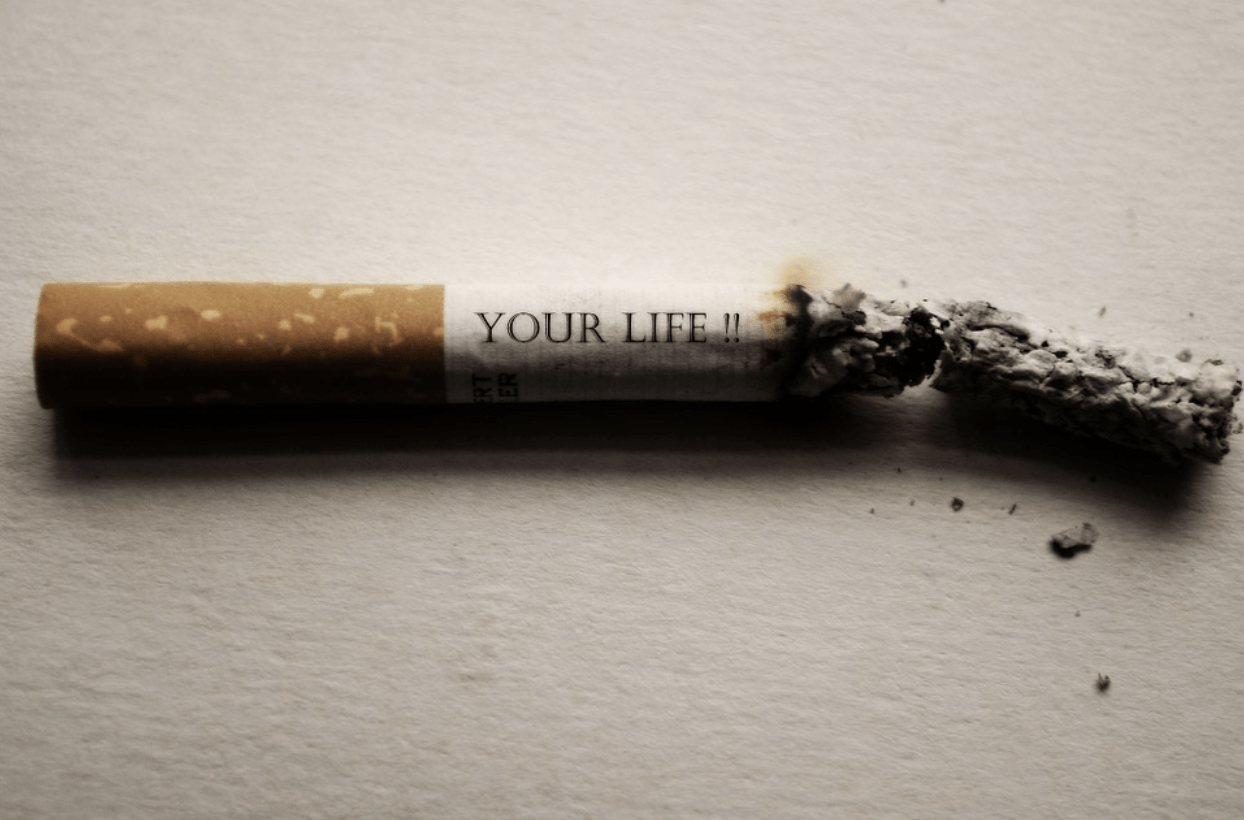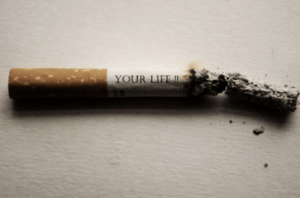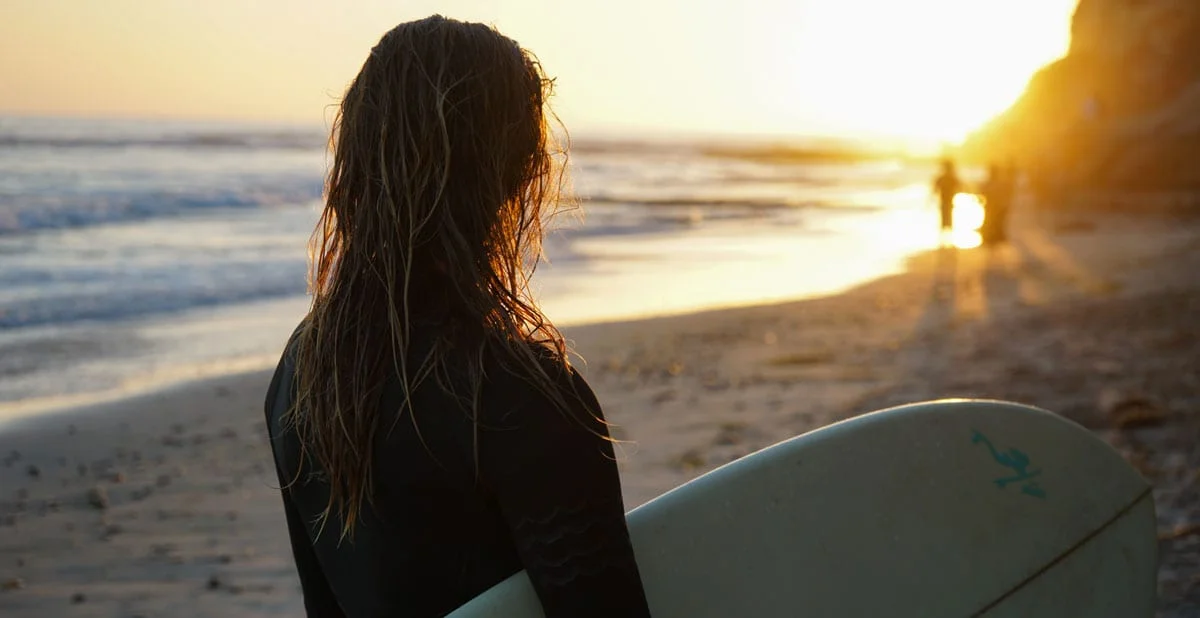
Navigating the complex world of emotions is never easy, especially when it comes to feelings of shame and guilt. If you’re seeking clarity and understanding about these feelings, you’ve come to the right place. Anchored Tides Recovery is committed to helping you understand and overcome the overwhelming sensations of guilt and shame, leading you toward a life of healing and recovery.
Understanding Guilt and Shame in Recovery
Before we delve into overcoming these feelings, it’s essential to understand what they are:
- Guilt: a feeling of having committed a wrong or failed obligation. After detoxification of substance, past events and actions begin to surface, and the feeling of wrongdoing that has impacted your family and friends.
- Shame: a painful feeling of humiliation or distress, often arising from the consciousness of something you’ve done wrong or a perceived inadequacy. Negative thoughts begin to occupy your mental space and decrease your self worth.
When navigating the path of recovery, especially from addiction, these feelings can become magnified. Yet, understanding is the first step to healing.
Addressing Guilt and Shame is Crucial
- Mental Health: Continuous feelings of shame and guilt can lead to depression, anxiety, and other mental health disorders. Addressing them head-on is critical for overall well-being.
- Personal Growth: Confronting and working through these emotions enables personal development and fosters resilience.
- Successful Recovery: For many on the recovery path, unresolved feelings can be a relapse trigger. By overcoming them, you bolster your chances of a successful and lasting recovery.
How Anchored Tides Recovery Can Help
At Anchored Tides Recovery, we understand the intricate relationship between shame, guilt, and recovery. Our programs are designed to not just address addiction, but also the emotional challenges that come with it. With a comprehensive approach, we provide:
- Therapeutic Sessions: Tailored to address individual needs, helping you understand and work through feelings of shame and guilt.
- Supportive Community: Surround yourself with individuals who understand your journey and can offer guidance and support.
- Resources: From workshops to reading materials, gain access to tools that can aid in your healing journey.
DON'T WAIT ANY LONGER...
4 Strategies to Overcome Shame and Guilt
If you’re grappling with these emotions, here are some strategies to consider:
- Self-compassion: Be kind to yourself. Everyone makes mistakes. It’s about how we learn and grow from them.
- Speak About Your Feelings: Sharing can be healing. Talk to someone you trust or consider seeking professional help.
- Forgiveness: Whether it’s forgiving yourself or others, letting go of past wrongs can be liberating.
- Mindfulness and Meditation: These practices can help you stay present, reduce anxiety, and gain clarity.
Understanding the Designation
Many might wonder what makes Anchored Tides Recovery different. The distinction lies in our commitment to holistic care. We believe in addressing the root causes, not just the symptoms, ensuring a comprehensive recovery journey. Overcoming shame and guilt is not a journey you have to embark on alone. With the right tools, resources, and support, healing is within reach. Anchored Tides Recovery is here to walk with you every step of the way, ensuring a brighter, guilt-free future ahead.
FAQ's
- Shame refers to the painful feeling arising from a perception of inadequacy or wrongdoing, often linked to one’s identity.
- Guilt is a feeling of responsibility for a specific act of wrongdoing, usually tied to a particular event rather than one’s character.
Therapy can offer a safe space for you to explore these complex emotions, understand their root causes, and develop strategies to cope with them effectively.
Absolutely. Many individuals in the process of recovery experience heightened feelings of shame and guilt. Addressing these feelings is a crucial aspect of the recovery journey.
At Anchored Tides Recovery, we offer individual therapy, group sessions, and specialized workshops that focus on emotional well-being, including addressing shame and guilt.
Relapse is often a part of the recovery journey. The key is to not let it define you. Learn from the experience and seek immediate help to get back on track.









































